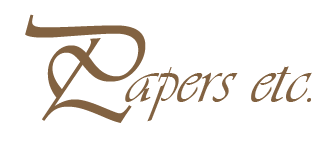Programme
Thursday 26th September 2013
Musée de l’Histoire de l’Immigration, Paris
09:00 -09:15 Introduction – Conference Team
- 09:15 -10:45 Ideologies – Chair: Arndt Weinrich (DHI Paris)
- 09:15 -09:45 › “Race Troops” in Europe: Black Americans encounter the black French other in World War One – Rachel Gillett, Harvard University, commentaire: Pap Ndiaye (Sciences Po Paris)
- 09:45 -10:15 › The Glory of Their Deeds: A Global History of Black Soldiers and the Great War Era – Sarah-Jane MATHIEU, University of Minnesota – Twin Cities, commentaire: Richard Fogarty (SUNY Albany)
- 10:15 -10:45 › Negotiating an Islamic ‘Other’: British Propaganda and the East in the Great War – Sadia McEvoy, King’s College London, commentaire : Cloé Drieu (CNRS-CETOBAC)
10:45 -11:15 Coffee break
- 11:15 -12:15 Empires – Chair: Santanu Das (KCL)
- 11:15 -11:45 › Encountering the Other in Wartime Egypt – Mario Ruiz, Hofstra University, commentaire LCL Rémy Porte (DCSSA)
- 11:45 -12:15 › Estonian Soldiers and the Others in the First World War: A Comparative Viewpoint – Liisi Eglit, Stanford University
- Libraries, University of Tartu, commentaire: Paul Simmons (Moscou)
12:15 -13:30 Lunch
- 13:30 -14:30 Occupations I – Chair: Annette Becker (Université Paris Ouest Nanterre La Défense, IUF)
- 13:30 -14:00 › Encountering Colored Frenchmen: Honor, Shame, and Respectable Comportment in the Post-World War I Occupied Rhineland – John Boonstra, University of Wisconsin Madison, commentaire Jean-Yves le Naour
- 14:00 -14:30 › »Hasty Observations«? — Geographical Field Research and Intercultural Encounters in the Austro-Hungarian Occupied Western Balkans, 1916—1918 – Heiko Brendel, Historisches Seminar, Johannes Gutenberg-Universität Mainz, commentaire: Pavlina Bobic (Birmingham)
14:30 -15:00 Coffee break
- 15:00 -16:30 Occupations II – Chair: Emmanuelle Cronier (Université de Picardie)
- 15:00 -15:30 › James E. Connolly – Male ‘Mauvaise Conduite’ in the Occupied Nord, 1914-1918 – James Connolly, King’s College London, Université Paris 4, Paris-Sorbonne, commentaire John Horne (Trinity College Dublin)
- 15:30 -16:00 › « Femmes à Boches ». Perspectives sur une occupation horizontale (France et Belgique, 1914 -1918) – Emmanuel Debruyne, Centre de Recherche sur l’Imaginaire (CRI) – UCL , commentaire John Horne (Trinity College Dublin)
- 16:00 -16:30 › The Militarisation of Civilian Life on the Western Front, 1914-1918 – Alex Dowdall, Trinity College Dublin, commentaire: Elizabeth Greenhalgh (University of New South Wales/Australian Defence Force Academy)
- 16:30 -17:30 Présentation du projet HERA “Cultural encounters” et projection du film “‘Whose Remembrance” – Santanu Das (KCL) & Suzanne Bargett (Imperial War Museum, Londres)
Friday 27th September 2013
Institut Historique allemand, Paris
- 09:30 -11:00 Intermediaries I – Chair: Jenny Macleod (Hull University)
- 09:30 -10:00 › The Other War Correspondents: Three Women Writers at the Western Front – Sara Prieto, Universidad de Alicante, commentaire: Laurence Campa (Paris-XII-Val-de-Marne)
- 10:00 -10:30 › Wartime Europe through the eyes of Argentine war correspondents – María Inés Tato, CONICET/University of Buenos Aires, commentaire tbc
- 10:30 -11:00 › Friends, colleagues, mediators. Austro-Hungarian and German POW artists and their ties with the Siberian art world 1915-1922 – Lena Radauer, Albert-Ludwigs University, commentaire: Heather Jones (LSE)
11:00 -11:15 Coffee break
- 11:15 -12:15 Intermediaries II – Chair: Edward Madigan, (Royal Holloway, University of London)
- 11:15 -11:45 › Italian soldiers, strangers in their Country: isolationism and social reaction in “War Zone”. The “Calcinato case”1915-1919. – Mauro Pellegrini, Museo della Guerra Bianca – Centro permanente di studio e documentazione della Grande Guerra in Lombardia, commentaire: Vanda Wilcox (John Cabot University, Rome)
- 11:45 -12:15 › East-European Jews in the Written Legacy of German Soldiers from the Great War – Leonid Rein, International Institute for Holocaust Research Yad Vashem, commentaire Wolfram Dornik (Graz)
12:15 -13:30 Lunch
- 13:30 -14:30 Distance sociale et géographique I – Chair: Emmanuel Saint-Fuscien (EHESS)
- 13:30 -14:00 › De la Grèce rêvée à la Grèce vécue. L’armée d’Orient dans une interculturalité complexe – Thérèse Krempp, EHESS Centre d’études byzantines néo-helléniques et sud-est européennes, commentaire: Olivier Cosson
- 14:00 -14:30 › Une domesticité militaire ? L’ordonnance comme indicateur des rapports de classe dans la Grande Guerre. -Nicolas Mariot, Centre universitaire de recherches sur l’action publique et le politique. Epistémologie et Sciences sociales, commentaire: Pierre Purseigle (Yale)
14:30 -14:45 Coffee break
- 14:45 -15:45 Distance sociale et géographique II – Chair: Élise Julien (IEP Lille)
- 14:45 -15:15 › A common problem for different countries: disabled soldiers and their re-integration into national communities -Martina Salvante, Trinity College Dublin, commentaire: Sophie Delaporte (Université de Picardie-Jules-Verne)
- 15:15 -15:45 › Des grains de sable dans la tempête: l’expérience interculturelle des combattants tchèques et slovaques dans la Grande Guerre. – Helena Trnkova, Centre de Recherches interdisciplinaires en sciences humaines et sociales, Université Montpellier III, commentaire: Claire Morelon (Centre d’Histoire de Sciences Po, Paris)
15:45 -16:00 Break
16:00 -17:30
- Closing discussion – Panel of International Society for First World War Studies members.

Commentaires récents